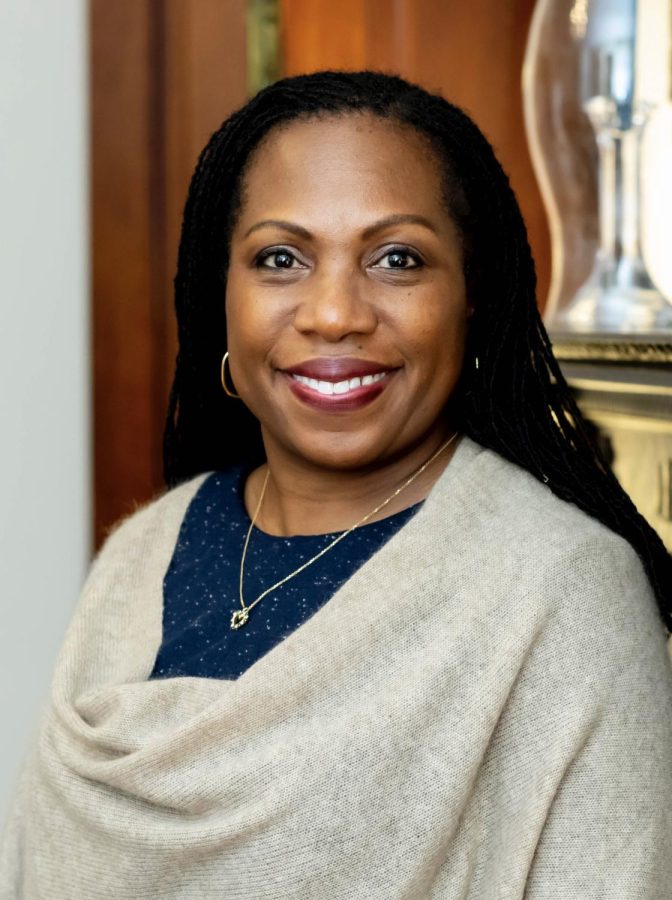A Historic Beginning: Judge Ketanji Brown Jackson Nominated as a Supreme Court Justice
Ketanji Brown Jackson is the first ever Black woman to be nominated as a United States Supreme Court Justice. Image from Wikimedia Commons.
March 11, 2022
Ketanji Brown Jackson has been nominated by President Joe Biden to be a United States Supreme Court Justice on February 25th, a historical beginning to a confirmation process for the first-ever black woman to have a spot on the nation’s highest court. The nomination fulfills Biden’s promise to select a black woman for the role during the 2020 election campaigns.
Jackson will replace Supreme Court Justice Stephen G. Breyer (D), who served as an associate justice on the Supreme Court since 1994, nominated by former President Bill Clinton. After former President Trump’s three years worth of appointments for justices, which created a heavily right-leaning court, many hope that Justice Breyer’s retirement promises more opportunities for Democrats to help balance or even take a majority of that number.
The nomination of Ketanji Brown Jackson has been heavily praised by Democrats, with Republicans as well acknowledging her stellar qualifications. She has been the top pick by media outlets, with a degree from Harvard University and Harvard Law, as well as being appointed by President Biden to the Court of Appeals for the D.C. Circuit. She has also served as a federal judge on the United States District Court for the District of Columbia prior to her elevation in position.
In his speech regarding her nomination, Biden lauded Jackson, stating, “She listens. She looks people in the eye — lawyers, defendants, victims, and families.” He described her opinions as “carefully reasoned” and her having “a uniquely accomplished and wide-ranging background.
The background President Biden mentions can be seen in Jackson’s experience as a criminal defense attorney more than fifteen years ago, which has attracted a lot of attention from both champions and critics of Jackson. If her position was confirmed, Jackson would become the first former public defender on the Supreme Court and the first justice with heavy criminal defense experience since Thurgood Marshall.
Jackson’s history in the field is insisted to be an asset by supporters, who view it as a different perspective on the court rather than the same prosecutors and corporate lawyers. However, some Republicans see this past as a liability on the court for the potential defense of destitute clients.
Yet overall, Jackson has the support of masses. In a letter to several Senate leaders and other political figures, eighty-three former state attorneys general conveyed their strong support for Jackson, endorsing her “outstanding qualifications.” They wrote, “Her impressive legal career has provided her with many opportunities; and she has experienced the justice system from all perspectives—as a federal appellate judge, district court judge, vice-chair of the U.S. Sentencing Commission, private practitioner, assistant public defender, and U.S. Supreme Court clerk for Associate Justice Stephen Breyer.” GOP Senator Susan Collins (Maine, R) has also praised her as an “impressive” pick.
The Supreme Court has had five women and two Black people serving throughout its history of 230 years. As someone who is a part of both demographics, Jackson is prepared for the challenge and responsibility that comes with her historical beginning, reiterating the idea that “the Supreme Court reflects the nation as a whole.”







